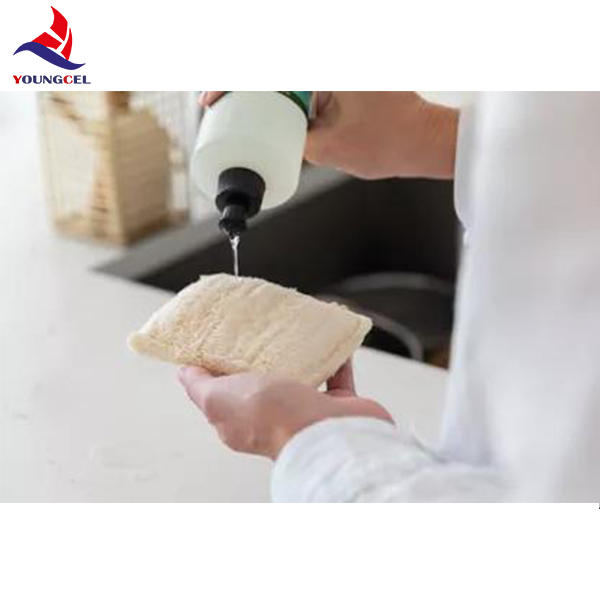Cement Mortar Additives Enhancing Performance and Durability
Cement mortar, a critical material in the construction industry, serves as a binding agent in masonry and plastering applications. Its strength, durability, and workability are essential for ensuring the longevity of structures. However, conventional cement mortar often faces challenges such as shrinkage, cracking, and inadequate adhesion. To address these issues, various additives have been developed to enhance the performance of cement mortar. This article explores the significance of cement mortar additives, their benefits, and commonly used types.
Understanding Cement Mortar Additives
Cement mortar additives are substances mixed with the basic components of cement and sand to improve specific properties of the mortar. These additives may include chemical agents, polymers, fibers, or mineral additives that can significantly influence the physical and mechanical properties of the mortar. The primary goal is to enhance workability, increase strength, reduce permeability, and minimize the risk of cracking.
Benefits of Using Cement Mortar Additives
1. Improved Workability One of the foremost advantages of using additives is the enhancement of workability. Additives such as plasticizers and superplasticizers alter the consistency of mortar, making it easier to apply and spread. This is particularly beneficial in complex masonry work, where precision is crucial.
2. Increased Strength Certain additives, such as silica fume and fly ash, can improve the compressive strength of cement mortar. These materials react with calcium hydroxide generated during the hydration of cement, leading to the formation of additional calcium silicate hydrates, which contribute to higher strength.
3. Reduced Shrinkage and Cracking Additives like shrinkage-reducing agents and fibers help mitigate the shrinkage that typically occurs as mortar dries. By controlling shrinkage, these additives reduce the occurrence of cracks, ensuring the structural integrity of masonry and plaster.
4. Enhanced Durability Additives can significantly enhance the durability of cement mortar. For instance, the incorporation of water-repellent agents can improve resistance to water penetration, protecting structures from moisture-related damage. Additionally, the use of polymer additives can provide improved resistance to environmental factors such as chemicals and extreme temperatures.
cement mortar additive

5. Sustainability As the construction industry increasingly prioritizes sustainability, the use of industrial by-products like fly ash and slag in cement mortar formulations is gaining traction. These materials not only reduce the carbon footprint of construction projects but also improve the performance characteristics of the mortar.
Common Types of Cement Mortar Additives
1. Chemical Additives This category includes plasticizers, superplasticizers, retarding agents, and accelerators. Each serves a specific purpose, such as enhancing fluidity, delaying setting time, or accelerating the curing process.
2. Polymer Additives Polymer-modified mortars are becoming popular due to their superior adhesion, flexibility, and water-repellency. These additives create a film in the mortar matrix, improving its overall performance and longevity.
3. Mineral Additives Materials like silica fume, fly ash, and slag are used not only to improve strength and durability but also to promote sustainability. These additives can replace a portion of cement in the mix, reducing the overall cement content.
4. Fibers Incorporating fibers such as polypropylene, steel, or glass can improve the crack resistance and toughness of cement mortar. Fibers help distribute stress throughout the mortar and increase its resistance to impact and deformation.
Conclusion
Cement mortar additives play a crucial role in modern construction, allowing for significant improvements in the performance and durability of mortar. By understanding the functions and benefits of various additives, construction professionals can make informed decisions that lead to better quality structures. As the industry continues to innovate, the development and application of advanced additives will likely pave the way for more resilient and sustainable building practices.
-
Rdp that The Revolutionary Polymer Powder Transforming Modern Construction MaterialsNewsAug.11,2025
-
Hpmc Powder that Versatile Additive for Detergents and Personal CareNewsAug.11,2025
-
Hpmc Hydroxypropyl Methylcellulose that Essential Building Material Additive from Shijiazhuang Gaocheng YongfengNewsAug.11,2025
-
Hydroxypropyl Methyl Cellulos Hpmc that Essential for Construction ApplicationsNewsAug.11,2025
-
Mhec Powder that Revolutionizing Construction Chemistry with Cellulose Ether SolutionsNewsAug.11,2025
-
Industri Hpmc that The Global Backbone of Advanced ConstructionNewsAug.11,2025




